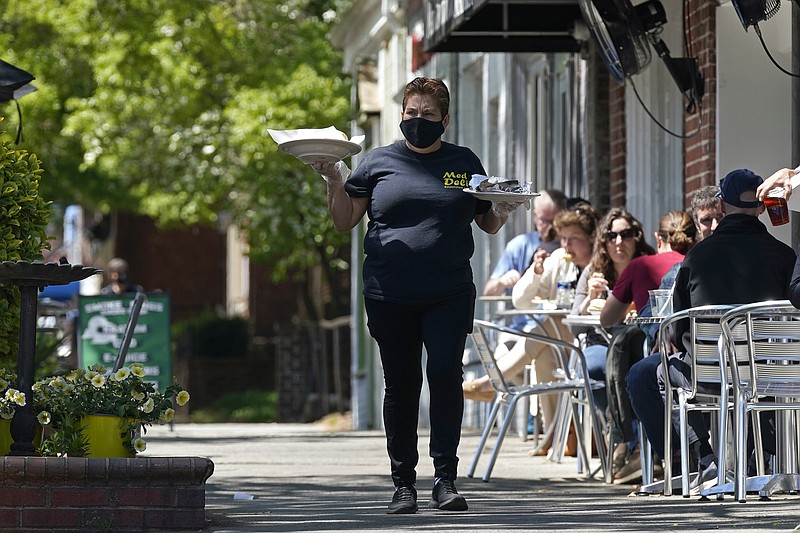WASHINGTON (AP) - Powered by consumers and fueled by government aid, the U.S. economy is achieving a remarkably fast recovery from the recession that ripped through the nation last year on the heels of the coronavirus and cost tens of millions of Americans their jobs and businesses.
The economy grew last quarter at a vigorous 6.4 percent annual rate, the government said Thursday, and expectations are that the current quarter will be even better. The number of people seeking unemployment aid - a rough reflection of layoffs - last week reached its lowest point since the pandemic struck. And the National Association of Realtors said Thursday that more Americans signed contracts to buy homes in March, reflecting a strong housing market as summer approaches.
Economists said widespread vaccinations and declining viral cases, the reopening of more businesses, a huge infusion of federal aid and healthy job gains should help sustain steady growth. For 2021 as a whole, they expect the economy to expand around 7 percent, which would mark the fastest calendar-year growth since 1984.
As American consumers have stepped up their spending in recent months, they have consumed physical goods far more than they have services, like haircuts, airline tickets and restaurant meals: Spending on goods accelerated at an annual pace of nearly 24 percent last quarter; services spending rose at a rate below 5 percent.
But now, that disparity will likely shift as more restaurants and entertainment venues reopen and people look to spend more on experiences and less on tangible items. On Friday, for example, Disneyland will reopen, with limited capacity, to California residents.
Andrew Song, whose family owns Kwan's Deli across from Atlanta's Centennial Olympic Park, is finally feeling hopeful after having lost most of his business last year as office workers stayed home. The deli should be able to sustain itself, Song said, from a rise in hotel guests, convention goers and tourists, even if office workers don't all return. Recently, he called a laid-off employee back to work.
Song credited the rebound, at least in part, to the rise in vaccinations, which he thinks has made Americans more comfortable about venturing out.
"More tourists are coming," he said. "We're seeing some familiar faces back inside the restaurant."
Online sites that have capitalized on goods purchases during the pandemic - from Amazon to Etsy to eBay - are under pressure to show they can sustain accelerating growth even as consumers look more toward services and less on goods. So far, Amazon, the dominant site by far, is hardly showing signs of slowing down. On Thursday, it reported that its first-quarter profit more than tripled from a year ago, fueled by online shopping.
The speed of the rebounding U.S. economy has been particularly striking given the depth of damage the pandemic inflicted on it beginning last year. With businesses all but shut down, the economy contracted at a record annual pace of 31 percent in the April-June quarter of last year before rebounding sharply in the subsequent months.
The bounce-back has been swift. In March, employers added 916,000 jobs - the biggest burst of hiring since August. Meantime, retail spending has surged, manufacturing output is up and consumer confidence has reached its highest point since the pandemic began.

